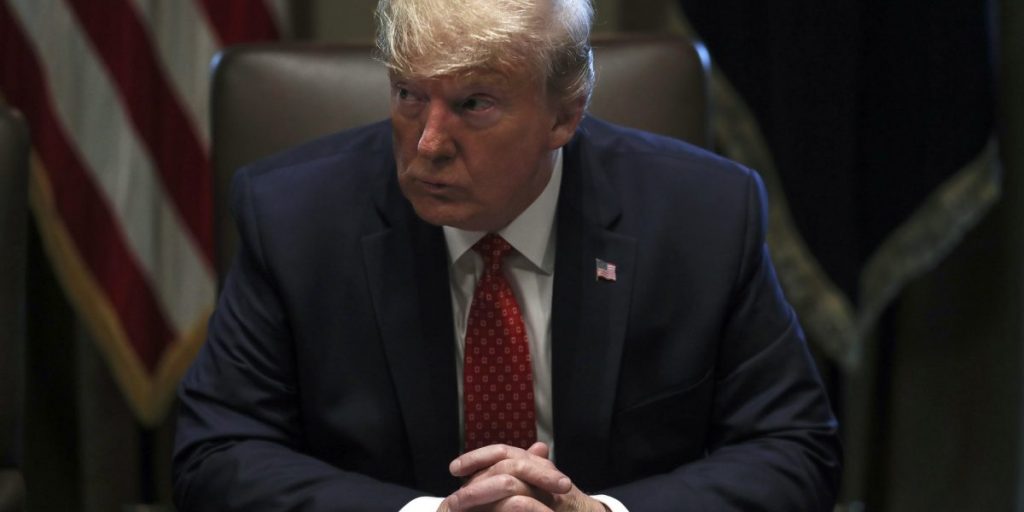President Donald Trump’s campaign is raising alarms and rallying its support over a statement made by a Facebook executive regarding the platform’s future of election advertisement.
On Wednesday afternoon, Facebook’s vice-president of global marketing strategies, Carolyn Everson, said at an Axios conference that the social media network does not restrict precise targeting to political ads or block misleading comments on its website.
Targeted ads from Facebook have become an essential tool for the Trump 2020 team, encouraging different audiences, such as white female suburban supporters or high school-aged Southern people, to display their tailor-made messages.
Gary Coby, the digital director for the president’s reelection campaign, claimed in a series of tweets that the move will mean that “more progressive small-dollar contributions go to Facebook’s pocket,” and “silence voters,” thus reducing participation. He kept calling the comments “very dangerous” and a “huge blow to speech,” saying a change would empower corporations, established politicians, and the rich “above the people.”
A couple of minutes later the official Trump campaign page tweeted a post close to its 1.3 million followers. “IMPORTANT,” the tweet wrote, surrounding the term with two siren emojis. “Facebook wants to strip away major resources from us by 2020,” it concluded.
No one on Facebook has stated that they are seriously contemplating an end to the tools for ad targeting. In reality, the business today revealed it would carry out a range of new tools that would allow marketers greater influence over where their ads appear.
Trump’s campaign is by a long shot the biggest user of paid advertising on the site, costing $15.4 million a year to date, even with a seat in the Oval Office, making them not a “smaller voice.”
Yet Trump’s campaign suddenly found itself trapped in a political firestorm for using Twitter to demonstrably make misleading statements on topics such as national protection, and immigration, and spread conspiracy theories regarding its possible opponents, such as former vice president Joe Biden.
Facebook founder and CEO Mark Zuckerberg defended the platform’s decision before Congress last month to encourage lawmakers to potentially distribute propaganda in targeted advertisements, saying his organization stood for free expression and free speech.He also penned a piece of opinion for the Wall Street Journal which contributed to his stance. “Facebook shouldn’t make too many critical speech choices by itself,” he said.
After Twitter CEO Jack Dorsey revealed that his site would ban all campaign advertising, Zuckerberg just doubled down on his proposal.
So what must Trump’s campaign gain by warning that Facebook may be about to ban its messaging?
Jesse Ferguson, the longtime spokeswoman for the 2016 presidential run of Hillary Clinton, considers this business as usual with the Trump administration, claiming it fits in line with Trump’s wider plan for reelection.
“His message only sells if he has someone who’s trying to keep him down,” he explained. “He’s the eternal villain in the hunt of an oppressor, and sometimes that’s business, sometimes tech, sometimes Democrats, and sometimes the government. Yet the one important point is that this shtick works even if it is used against someone who is trying to pull him down.
But even if this is a political tactic, there is obviously a genuine fear at Trump HQ about what an end to Facebook’s targeted advertising might mean for the president, who relied heavily on the web to raise the bulk of his $250 million in online contributions during the 2016 election.
Donald Trump’s former digital director and current campaign manager Brad Parscale said in a 2016 Wired interview.“Our biggest incubator that allowed us to generate that money was Facebook,” said “Facebook and Twitter were the reason we won this thing,” he said. “Twitter for Mr. Trump. And Facebook for fundraising.”
Facebook was critical recently of Trump’s message of anti-impeachment. A study by Laura Edelson, a professor at the Tandon School of Technology at New York University, showed that during the first week of the official investigation, the company aired over 6,000 tailored campaigns that included the term “impeachment,” branding it a “hoax” and “absolute fraud,” and spent as much as $1.4 million. The advertisements, Edelson noted, were directly targeting four minority congresswomen.
Google revealed on Wednesday that it would restrict targeted political ads to certain categories: age, gender, and general position (level of postal code), leading to the uncertainty that Facebook would act next.
And of course, talks about money. The Trump campaign has made it known that they don’t plan to waste any more time on their ads to get the same results. The campaign argued that Trump backers were seeking to snatch “hard-won small-dollar contributions” away from the organization to line their pockets.
Check More Content Down Below –
Article Rewriter Tool – Generate Quality Articles | Trends Rewriter
